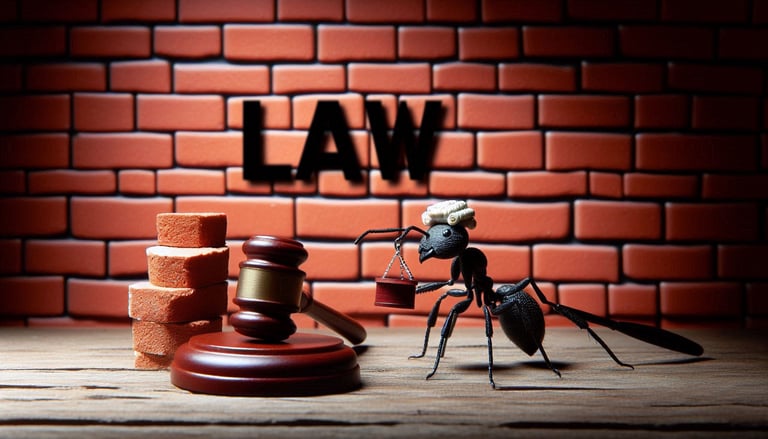Rape Laws Insights: India
Dixita Baishya
University Law College, Gauhati University
This Blog is written by Dixita Baishya, a Third Year Law Student of University Law College, Gauhati University


Rape Laws Insights: India
What is Rape?
Indian Laws define rape as a heinous crime committed by a man on a woman without her consent. Section 375 of the IPC deals with Rape. Rape may occur when a man has a sexual intercourse with a woman in the following cases :
Firstly: Against her will.
Secondly: Without her consent.
Thirdly: With her consent, when her consent has been obtained by putting her or any person in whom she is interested, in fear of death or of hurt.
Fourthly: With her consent, when the man knows that he is not her husband and that her consent is given because she believes that he is another man to whom she is or believes herself to be lawfully married.
Fifthly: With her consent, when, at the time of giving such consent, because of unsoundness of mind or intoxication or the administration by him personally or through another of any stupefying or unwholesome substance, she is unable to understand the nature and consequences of that to which she gives consent.
Key provisions and punishments :
The Criminal Law (Amendment) Act, of 2013 brought about various changes to the legal framework surrounding rape. It expanded the definition of rape and other forms of sexual violence other than penile-vaginal penetration, object penetration, and encompassing oral and anal.
Section 376 defines punishment for rape under IPC, with a minimum of 7 years’ imprisonment and may also include life imprisonment or even the death penalty in serious cases, such as the rape of minors, custodial rape, and gang rape.
Mathura and Nirbhaya : Turning Points in Indian Rape laws :
The Mathura rape case, where a teenage Adivasi girl was raped by two policemen led to national outrage and public protest as the court dismissed the case citing that there is the absence of injury and no resistance from Mathura which eventually led to the Criminal Amendment Act of 1983 which included Section 376 B, 376 C and 376 D which addressed custodial rape and shifted the burden of proving consent onto the accused.
In 2012, the Nirbhaya case traumatized the nation with the brutal gang rape of a woman in Delhi. It led to widespread protests and changes of many laws and even included the punishment of the death penalty for the conviction culprits.
Legal Reforms and Amendments
In response to the Justice Verma committee report, The Criminal Amendment Act 2013 brought about significant changes to the Indian penal code, code of criminal procedure, and Indian Evidence Act. It expanded the definition of rape and other form of sexual violence other than penile-vaginal penetration, object penetration, and encompassing oral and anal.
The Unnau and Kathua Rapes led to The Criminal Amendment Act 2018 . It introduced new sections to increase punishments for rape mainly for offences against minors. Significant Changes include:
· Section 376: Minimum ten years’ imprisonment for rape
· Section 376AB: Minimum twenty years’ imprisonment for the rape of a child under 12.
· Section 376DA: Life imprisonment for gang rape of a girl under 16.
· Section 376DB: Life imprisonment or death for gang rape of a girl under 12.
Protection of Children from Sexual Offences Act, 2012 ( POCSO):
• The Act was enacted to protect children from sexual assault, sexual harassment, and pornography.
• The POCSO Act raised the age of consent to 18 years (which was 16 till 2012) and criminalizes all sexual activities for those under 18 even if consent was factually present between two minors.
• This Act was also amended in 2019 to make provisions for the enhancement of punishment for various offenses to ensure the safety, security & dignity of a child.
Challenges in Reporting and prosecution
Despite improvements in the law, many challenges still make it hard to prosecute rape cases effectively. Societal stigma often prevents survivors from reporting incidents, leading to fewer cases being reported. When survivors do speak up, they face various obstacles, such as police being hesitant to file FIRs and a long, complicated legal process. Additionally, proving the case often falls on the survivor, which can make it hard to get a conviction.
Investigative practices can also be lacking, with poor medical examinations and too much reliance on the survivor's testimony. These problems contribute to a low conviction rate, discouraging more victims from seeking justice.
Protecting the identity of the survivors
No one is allowed to print or publish the name or any matter which may reveal the identity of a survivor. The punishment for doing so is imprisonment for up to two years and a fine. Without getting permission from the court, if anyone prints or publishes any matter about a rape case which is currently ongoing in court, they are punishable with imprisonment for up to two years and a fine.
The identity of the survivor can only be revealed:
• For investigation – In this case, the identity can be revealed by the officer-in-charge of a police station or the police officer investigating the case.
• By the survivor, or with her written permission.
• By the close family of the survivor, or with their permission – This is allowed if the woman is dead, or a minor, or of unsound mind. In this case, the family can give such permission only to the chairman or the secretary of any recognized welfare institution or organization.
Conclusion
Despite legal progress, barriers like stigma and poor investigations still hinder rape survivors in India from achieving justice. Improving support systems and raising awareness is crucial for empowering victims and ensuring their safety.
References:
· https://nyaaya.org/legal-explainers/crimes-violence/sexual-violence/rape/
· https://nyaaya.org/guest-blog/demystifying-indias-rape-laws/
· https://en.m.wikipedia.org/wiki/Rape_in_India
· https://articles.manupatra.com/article-details/An-Extensive-study-of-Rape-Laws-in-India
· https://www.drishtiias.com/daily-updates/daily-news-analysis/rape-crimes
